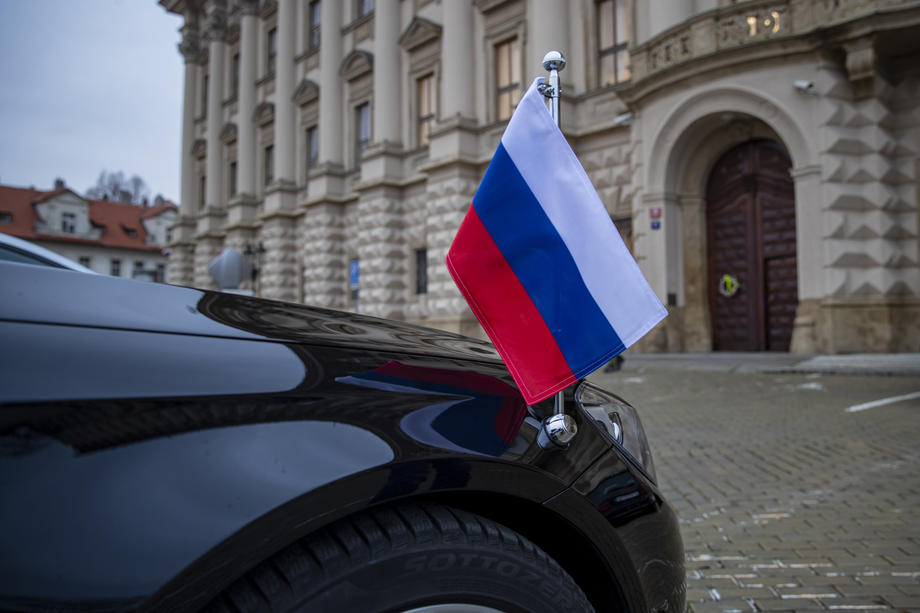Gallup: Russian policy is destabilizing

Russia's image has been repeatedly assessed as negative in recent years, according to opinion polls. One-third of those polled by Gallup International in late 2021 now say Russia's international policies are stabilizing the world. However, almost half of those polled believe that Russian policy is destabilizing. A quarter can not form an opinion. Thus, the global net value for Russia is -17.
Russia's international role is most negatively perceived by people in Australia, the United States, Europe and the EU (especially Western countries in the Union) and the Middle East. Respondents in India, on the other hand, find Russian policy more stabilizing - even more so than Russians themselves. Russia's international policies are also praised in Africa. However, there, as in the United States, Russia, and South America, the share of fluctuations is about one-third of all responses.
Russia's international policies are considered the most stabilizing in Albania (86% said yes), Vietnam (76%), Serbia (64%), Kazakhstan (62%) and India (57%).
Top 5 of the largest shares of negative responses are registered in Ukraine (74% answered negatively), Austria (70%), Germany, Kosovo, Poland (69%), Czech Republic (68%). and Switzerland (66%).
Gallup International reports a serious increase in positive attitudes towards the United States. The largest superpower is approaching the positive part of the scale. The key factor for this is not so much the withdrawal from Afghanistan, but the removal of President Donald Trump. Interestingly, the study itself shows that negative assessments of the United States are still growing in Afghanistan.
Globally, in the most negative light, the United States is perceived in the Middle East, Russia and Western Asia. In contrast, the majority of people in India and Africa see a stabilizing effect on American international politics. People in Russia (almost a third of all respondents there) and in the European Union seem most insecure about this.
The global net result for the US - response rates "stabilizing" minus response rates "destabilizing" - is now -2. Three years ago it was -28.
The top 5 countries that believe that US international policy is stabilizing the world are Vietnam (76% say the US is stabilizing the world with its international policies), Albania (72%), Nigeria (72%), Philippines (71%), Kenya ( 70%), Kosovo (70%) and Thailand (64%).
People in Afghanistan (72% say US policy is destabilizing), Serbia (71%), Iraq (70%). Palestinian Territory (68%) and Pakistan (63%) are the strongest in their view that US international policy is destabilizing the world.
The European Union's international policies are still considered to be quite stable globally.
The EU is still the only one of the four global powers that is in the positive part of the scale (+18 net value according to the current wave of research). Positive assessments of the Union's role in international relations are fairly consistent, although some variations have been noted. On the other hand, there are doubts whether the EU is actually capable of influencing world politics.
In Russia and the Middle East, however, attitudes differ significantly from the global picture. There have been significant criticisms of the EU.
The European Union is most positively perceived in Albania (82%), Vietnam (78%), Colombia (62%), Malaysia (60%) and Germany (59%).
The top 5 highest destabilizing response rates are in the Palestinian territories (57% answered negatively), Serbia (51%), Afghanistan and Iraq (48% each), Russia (45%), Hong Kong and Pakistan (44% each).
The study highlights Russia and China as destabilizing factors in the world.
China's international policies are also considered quite destabilizing for the world (-18). China's policies are likely to be destabilizing in Australia (with a majority of 80% of all responses), India, the Middle East, Europe (significantly larger shares in the EU and especially in the West) and the United States.
People in Africa and to some extent in Russia see a rather stabilizing role in China's international politics. The attitude of the Russians on this issue shows another interesting direction - two-fifths of the respondents there are hesitant and can not give an accurate assessment of China's international policy.
Top 5 shares of positive attitudes towards China's international policies are registered in Albania (79% responded positively), Kenya (64%), Malaysia (64%), Nigeria (64%) Pakistan (58%), Serbia (56% )) and Thailand (53%).
The top 5 countries that see China's international policy as quite destabilizing for the world are the Republic of Korea (88% say it "destabilizes"), Vietnam (82%), Australia (80%), Austria (72%) and Switzerland (71%). ).


